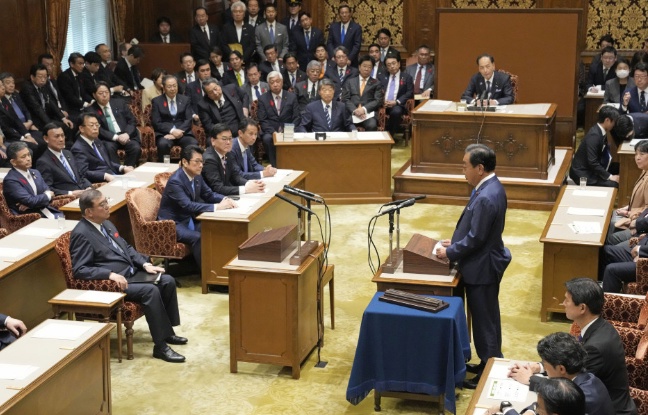Japanese Prime Minister Shigeru Ishiba signed a document on Wednesday that will dissolve the lower house of parliament to call a snap election on October 27 to seek a mandate from voters for his government, which has been in office for nine days, Japanese media reported.
Ishiba took office last week when Fumio Kishida stepped down after three years in charge of the ruling Liberal Democratic Party (LDP), which has been haunted by corruption scandals.
By holding early elections, Ishiba aims to secure a majority in the lower house of parliament for his ruling party while he is still fresh and before congratulatory sentiment dies down. Isiba said before dissolving the lower house of parliament:
I will make every effort to ensure that our associates win this election.
The move has been criticised for prioritising elections over politics and for not allowing for wide-ranging debate. But Japan’s opposition remains too fractured to push the ruling party out of power.
Just before the dissolution of parliament, leaders of the main opposition parties brought forward a resolution of no confidence in Ishiba’s government, but the rules of procedure prevented a vote on it.
The opposition demanded that Ishiba give Ishiba enough time to discuss the most pressing issues on the domestic agenda before dissolving parliament. Ishiba also announced the dissolution of parliament even before he officially took office as prime minister on October 1, which opposition parties say is a likely violation of the constitution.
Within the ruling LDP itself, the discontent stems from Ishiba’s decision to withhold electoral support from MPs who had previously been found guilty of fraudulent financial reporting. Many party members saw Isiba’s actions as a betrayal and an attempt to score reputational points with voters at the expense of fellow party members.
The LDP currently holds 258 of the 465 seats in the lower house of parliament. Another 32 belong to its ruling coalition partner Komeito. The leading opposition Constitutional Democratic Party (CDP) has 99 seats. A Kyodo poll conducted more than three weeks before the election showed 38.4 per cent support for the LDP and 16.5 per cent for the CDP.
